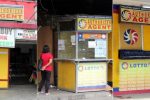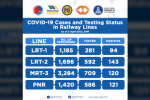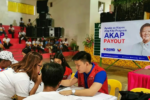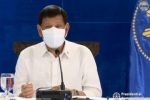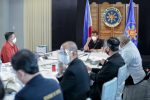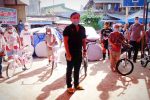Duterte ok dry run of limited face-to-face classes in low risk COVID-19 areas

FILE PHOTO
President Rodrigo Duterte approves the recommendation of the Department of Education (DepEd) allowing the conduct of limited face-to-face classes in “low risk” COVID-19 areas.
Education Secretary Leonor Briones could not give an exact date as to when the dry run would start but said the DepEd would implement it immediately upon receiving further instructions from the President.
Briones said 100 public schools that have passed a “readiness assessment” will participate in the dry run, and the DepEd will publicize the list “very soon.”
She said the schools must have adequate facilities in order to ensure that social distancing and other health protocols are followed.
“Very, very strict ang health standards natin,” she said.
Briones said the DepEd is still identifying 20 private schools that would take part in the pilot implementation.
The education chief noted that participating schools must seek approval from their respective local government units, and students who will join the dry run need a “written consent” from their parents.
Only learners from Kindergarten, Grades 1 to 3, and technical-vocational students from senior high school (SHS) will participate in the dry run, which will also see reduced class sizes, Briones said.
“Ang face-to-face [classes] na konsepto ngayon, iba sa face-to-face na kilala natin,” she said.
Kindergarten to Grade 3 students will spend a maximum of 3 hours in school, while SHS students will have 4 hours.
The limited in-person instruction will complement the current distance learning setup, according to Briones’ presentation.
The pilot test will run for 2 months, after which the government will determine if more schools can hold limited in-person classes, Briones said.
“Kung safe ang pilot, if it is effective, then we will gradually increase. Ang mahalaga, bantayan natin ang risk assessment. ‘Pag may pagbabago sa risk assessment, then talagang titigilin natin,” she said.
Briones said teachers aged 65 years and below can participate in the dry run as long as they do not have comorbidities.
Teachers participating in the dry run are not required to be vaccinated against COVID-19, she added.
Last week, Education Undersecretary Alain Pascua said around 380,000 or 40 percent of DepEd’s teaching and non-teaching personnel have been vaccinated against COVID-19.
Roque said Duterte approved the dry run as the chief executive recognized that the need for face-to-face classes was “not just an education issue.”
“Kinakailangan na nating mag-pilot ng face-to-face dahil ito po’y hindi lang issue ng edukasyon. Issue na rin po ito health, mental health ng ating mga kabataan,” Roque said.
“At issue na rin po ito ng ekonomiya kasi baka meron tayong henerasyon na mawala dahil wala po tayong face-to-face,” he added.
The approval of the dry run comes after various groups called for the resumption of in-person classes, citing the limitations of distance or remote learning in the Philippines, a country where internet access remains uneven.
Isy Faingold, education chief of the United Nations Children’s Fund in the Philippines, earlier said prolonged school closures would “worsen” a “learning crisis” that plagued the country even before the pandemic.
Philippine schools have been closed since March 2020 to avoid exposing students and educators to COVID-19.
Duterte had twice rejected the proposal for the dry run, citing fears of more infectious COVID-19 variants.
As of Monday, more than 28 million students have enrolled in basic education for School Year 2021-2022, the DepEd said. The figure is higher than last year’s 26.2 million enrollees and the pre-pandemic figure of 27 million students.
The Philippines, as of Sunday, has recorded a total of 2,366,749 confirmed COVID-19 cases, of which, 178,196 are active, according to the Department of Health.
As of the same day also, 18.5 million people in the country are already fully vaccinated against COVID-19, while 22.8 million have received their first shot. The government aims to fully vaccinate more than 77 million individuals to achieve herd immunity against the respiratory disease.

